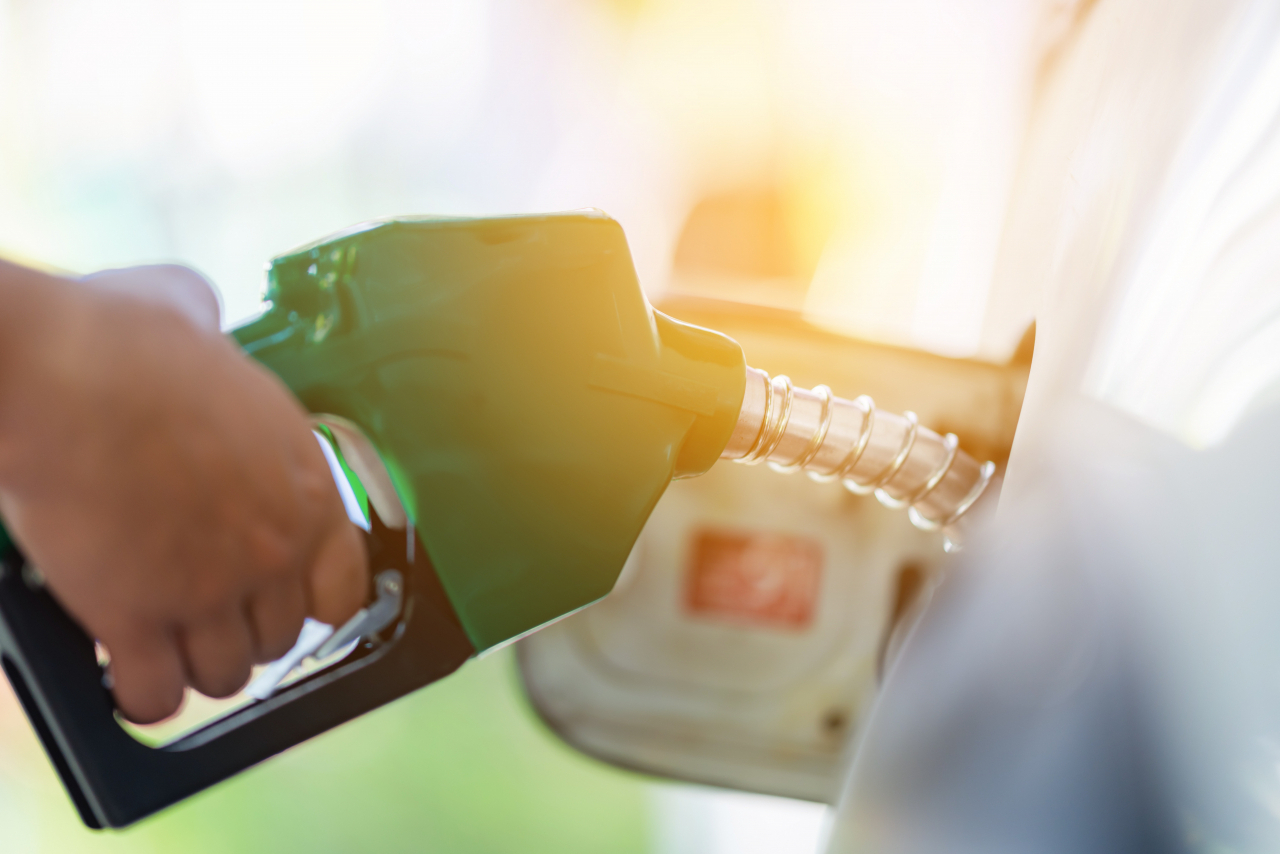[KH Explains] Refiners aim for survival amid EV boom
Only 1 in 4 gas stations expected to survive in 2040, according to industry estimates
By Kan Hyeong-wooPublished : April 2, 2023 - 14:43

South Korean oil refiners are turning to eco-friendly energy and searching for future growth engines to cope with the rise of electric vehicles threatening the current business model of traditional gas stations.
According to the Korea Energy Economics Institute’s report on the oil industry’s countermeasures in regard to electric mobility, the number of gas stations in South Korea is expected to drop to 2,980 in 2040 to maintain the level of operating performance to keep their businesses afloat. The sharp fall is about a 75 percent decrease from 11,509 in 2019.
The recent surge in the number of EVs is further adding to gas stations' decline. According to the Korea Automobile Manufacturers Association, 164,324 EVs were sold in the country last year, up 63.7 percent on year. The EV sales figure accounted for 9.8 percent of the total automotive market. The trend will accelerate as global automakers are ramping up their EV lineups with some pledging to go electric-only in the near future.
The public sector is also speeding up the EV rush. The Korean government already provides subsidies to buyers of eco-friendly vehicles. The Seoul Metropolitan Government announced that it will not allow the new registration of cars running on internal combustion engines starting in 2035. The city will prohibit such vehicles from driving in the city altogether in 2050.
The country’s oil refiners -- GS Caltex, Hyundai Oilbank, SK Innovation and S-Oil -- have turned their focus away from the traditional petroleum business to find alternative growth engines for the future.
SK Energy, a 100 percent subsidiary of SK Innovation, sold all of the 116 directly-managed oil stations for 763.8 billion won ($588 million) in June 2021. The company said it decided to liquidate the assets to secure cash to invest in future growth engines such as expanding its secondary battery production.
SK Innovation unveiled a plan to spend 10 trillion won in capital expenditure with 7 trillion won allocated for securing battery production capability during a conference call in February. SK On, the battery subsidiary of SK Innovation, ranked fifth in the global battery market with a 5.4 percent share last year.
SK Innovation announced in October last year that the company will spend about 5 trillion won to build a plastic recycling complex in Ulsan scheduled to start operations in the second half of 2025 to bolster the firm’s eco-friendly business for a sustainable future.
S-Oil, which is over 63 percent-owned by the world’s largest oil producer Saudi Arabia’s Aramco, broke ground on a $7 billion petrochemical project in Ulsan in March. Named the Shaheen Project, the green energy investment includes building a facility capable of producing 3.2 million metric tons of petrochemicals per year.
S-Oil has continuously invested in venture companies in battery, certified emission reduction, chemical materials and smart factories since 2019. The oil refinery said it will keep investing in advancing hydrogen technology and decreasing carbon emissions.
GS Caltex opened a mixed feed cracker, or MFC, facility in Yeosu, a coastal city in South Jeolla Province in November. The company invested 2.7 trillion won in the MFC facility, the largest investment in the company's history. The eco-friendly facility is capable of producing 750,000 tons of ethylene and 500,000 tons of polyethylene as well as others, according to the company.
GS Caltex has also recently teamed up with Korea South-East Power to push for a green transformation and set up a clean hydrogen value chain.
Hyundai Oilbank is currently building a biodiesel plant with an annual production capacity of 130,000 tons in Seosan, South Chungcheong Province. The plant, which is expected to be completed this year, is the first step of the company’s next generational white bio project that refers to carbon reduction businesses using plants to create chemical materials and energy sources.
Hyundai Oilbank signed a strategic partnership with global hydrogen company Air Products with the target to produce 100,000 tons of blue hydrogen by 2025. Blue hydrogen indicates hydrogen produced from natural gas and supported by carbon capture and storage.
In the face of the rising EV trend, major oil refiners have either installed chargers for electric vehicles at their directly-managed gas stations or begun turning some of them into all-EV charging stations.
On the other hand, individual owners of franchised gas stations are finding themselves in a tough position as they struggle to install EV chargers due to the burden of early investment and concerns over profitability.
“We still have way more customers driving traditional cars than EV drivers,” said an owner of a gas station surnamed Paik in Chuncheon, Gangwon Province. The owner did not wish to disclose detailed information about the gas station.
“But there will be more EVs on the road. Once that happens, what can we do about it?” Paik said.
The Korea Petroleum Association, Korea Oil Association and Korea Oil Station Association have been conducting policy discussions on the oil retail industry amid such changes at the National Assembly since 2021.
The groups called upon the government to strengthen support measures to guide the business transformation of individually owned oil stations. According to the office of Rep. Kim Kyung-man, only six oil station owners have received the state’s help as of July last year.








![[Graphic News] More Koreans say they plan long-distance trips this year](http://res.heraldm.com/phpwas/restmb_idxmake.php?idx=644&simg=/content/image/2024/04/17/20240417050828_0.gif&u=)
![[KH Explains] Hyundai's full hybrid edge to pay off amid slow transition to pure EVs](http://res.heraldm.com/phpwas/restmb_idxmake.php?idx=644&simg=/content/image/2024/04/18/20240418050645_0.jpg&u=20240419100350)








![[KH Explains] Hyundai's full hybrid edge to pay off amid slow transition to pure EVs](http://res.heraldm.com/phpwas/restmb_idxmake.php?idx=652&simg=/content/image/2024/04/18/20240418050645_0.jpg&u=20240419100350)

![[Today’s K-pop] Illit drops debut single remix](http://res.heraldm.com/phpwas/restmb_idxmake.php?idx=642&simg=/content/image/2024/04/19/20240419050612_0.jpg&u=)